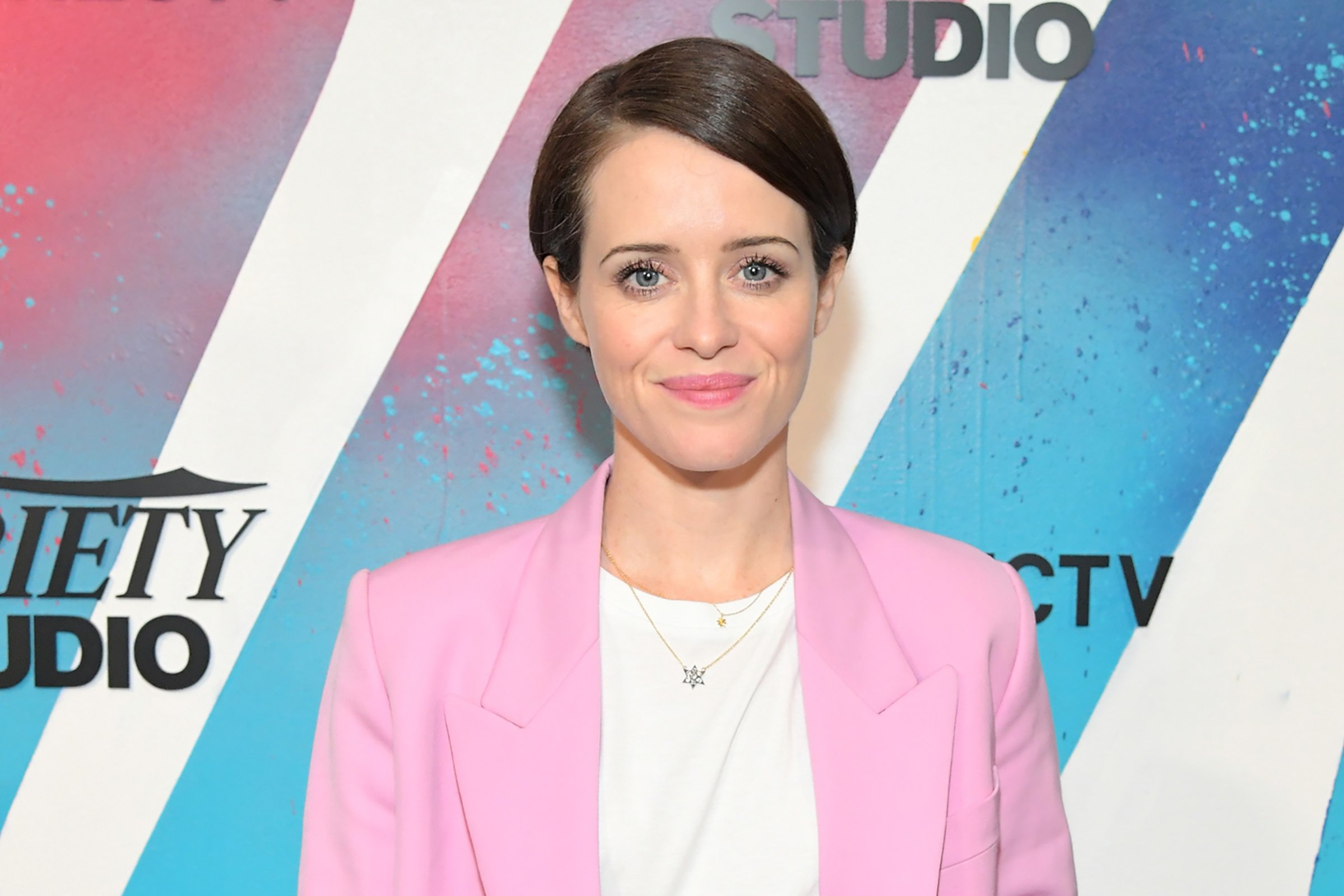
After earning an Emmy for The Crown and Oscar buzz for First Man, the actor dons a dragon tattoo for The Girl in the Spider’s Web.
Lisbeth Salander, the punk hacker you play in The Girl in the Spider’s Web, is Queen Elizabeth II’s polar opposite. Did you intentionally take on something totally different after The Crown?
I have always tried to take on new roles in each step of my career, and Lisbeth is a rare character. Normally the protagonist is someone people instantly love. Lisbeth holds no store in what people think of her. If anything, she sees people liking her as a dangerous thing.
What did you think of the character when you first encountered her in Stieg Larsson’s Millennium series?
She’s quite revolutionary–not because of the piercings or tattoos. She’s a person who knew she wasn’t going to get justice within the system because there was no room for her in that world. But she could get her own type of justice. I had never read about a woman who acted in that way.
Lisbeth emerged in 2005, when the first of the series’ five books was published, as a vigilante who punishes men who hurt women. Do you think #MeToo will change how people perceive her?
I have heard #MeToo stories for a long time. It’s just that now they’re finally being reported on and discussed openly. To me, Lisbeth has always been a relevant character.
The one thing Lisbeth and Queen Elizabeth II have in common is that they both suppress their emotions. How do you prepare for scenes like that?
In our everyday lives, we say one thing and we’re thinking another. We’re not honest with ourselves or other people the majority of the time. So acting is just a basic exercise in trying to be alive. Showing emotion, that’s not acting, really. You want the audience to interpret what the character is thinking or feeling.
How do you accomplish that?
Acting isn’t about what I’m doing. It’s about listening. What is the other person saying? Is my character moved to speak? If they do say something, why do they say it? I lean heavily on my fellow actors, and I’m very lucky to be on set with talented people. I would be terrible at delivering monologues, I think.
In First Man, you play Neil Armstrong’s wife Janet, who does a lot of the emotional labor for a husband who represses his feelings. How did you understand that relationship?
In our story, Neil ran away to stop himself from hurting, which is a very human thing to do. Janet was strong enough to take that burden for the both of them. She had lost her child, she lived in a reality where her husband could die at any moment, and she knew that she had to face it, confront it and then move on. She had to keep everything running, keep Neil running, keep the image up.
The royal family also goes to great lengths to project a particular image. Did playing the Queen give you any perspective on their public face?
Early in Elizabeth’s reign, the family was held up as perfect leaders of the Church of England. They were beyond reproach. Within a decade, in the 1960s, that had completely turned on its head. Media changes so quickly. And they just live and die by public opinion. Although it seems they’re a very privileged institution, the British public and the press are constantly holding them to account.
Have you seen a difference in American and British reactions to the show?
No, not particularly. I was quite overwhelmed by the diversity of the people who watched it and responded to it. That was true for Lisbeth too. She’s not the normal image that we’re fed of what it means to be successful, to be a certain age, to be living in a certain world.
More Must-Reads from TIME
- Donald Trump Is TIME's 2024 Person of the Year
- Why We Chose Trump as Person of the Year
- Is Intermittent Fasting Good or Bad for You?
- The 100 Must-Read Books of 2024
- The 20 Best Christmas TV Episodes
- Column: If Optimism Feels Ridiculous Now, Try Hope
- The Future of Climate Action Is Trade Policy
- Merle Bombardieri Is Helping People Make the Baby Decision
Write to Eliana Dockterman at eliana.dockterman@time.com